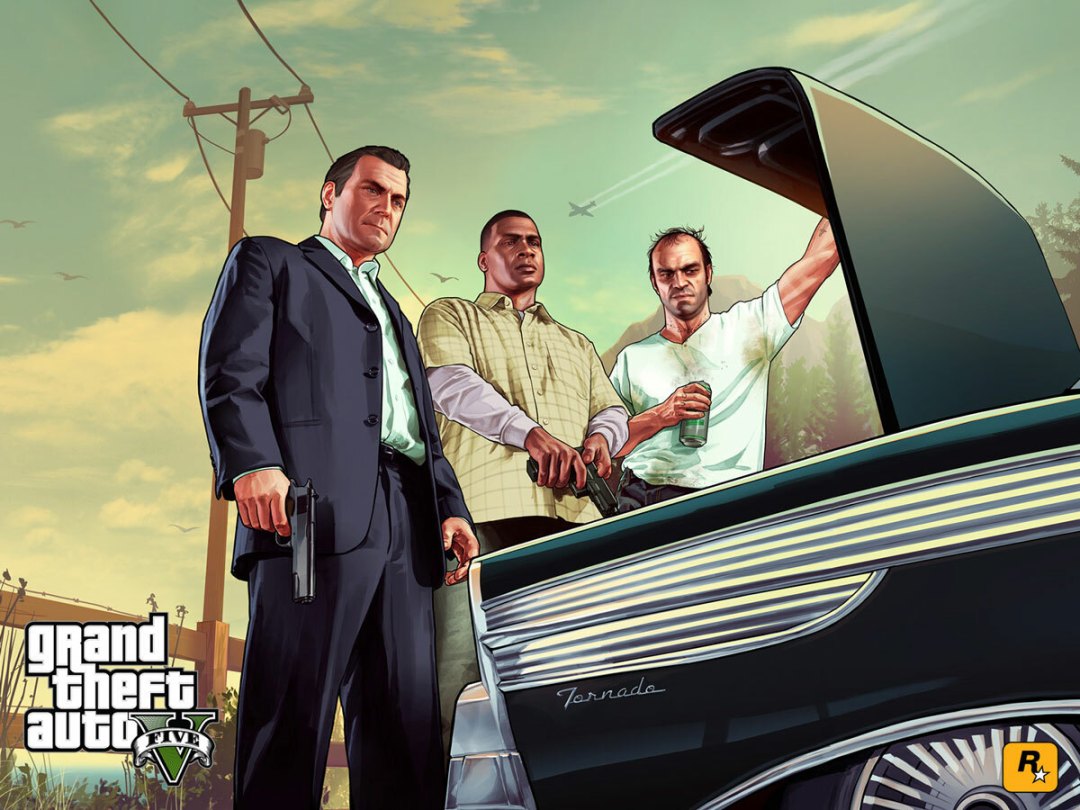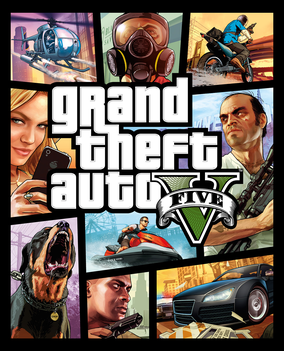
Introduction
Since its release in 2013, Grand Theft Auto V (GTA V) has become one of the most successful and widely discussed games of the modern era. Known for its open-world gameplay, provocative storylines, and satirical take on modern society, GTA V has garnered both critical acclaim and severe criticism.
A key area of contention that remains a focal point of discussion is the game's portrayal of violence and its potential effects on players' morality.
Exploring the Spectrum of Violence in GTA V
At the heart of GTA V’s gameplay is its ability to allow players to engage in violent acts. From high-speed car chases to brutal shootouts, the game pushes the limits of what is permissible within an open-world video game.
The player takes on the role of three distinct characters—Michael, Franklin, and Trevor—each of whom is deeply involved in a cycle of criminality, often involving violent and morally questionable actions. The game allows players to orchestrate these violent acts, and in many cases, violence is presented not just as a means to an end but as an engaging part of the experience itself.
Unlike previous GTA titles, where violence was more of a background feature, GTA V places it at the center of its narrative. Whether it’s robbing banks, engaging in gang wars, or assassinating targets for personal or financial gain, the game offers no shortage of violent opportunities. This constant engagement with violence raises questions about the impact of such portrayals on players, especially given the realism with which the violence is executed.
In-Game Violence as a Narrative Device
The game’s violence isn't arbitrary; it serves a narrative purpose. Michael’s troubled relationship with his family, Franklin’s desire to rise above his circumstances, and Trevor’s chaotic, unpredictable nature all point to characters whose lives have been shaped by their violent choices. In this way, violence in GTA V is often used to highlight the emotional and moral struggles of the characters.
However, this use of violence also generates a significant amount of controversy. Critics argue that presenting violence as part of character development can desensitize players to real-world violence. The line between fiction and reality becomes blurred, particularly for younger audiences who may lack the maturity to critically analyze the actions they are taking in the game.
Players as Moral Agents in an Immoral World
One of the most intriguing aspects of GTA V is its approach to player agency. The game does not force players to commit violent acts; instead, it offers them a series of morally ambiguous choices. These choices range from stealing cars and committing robberies to deciding the fate of key characters in the story. The player’s decisions play a significant role in shaping the outcome of the narrative, but they also reveal the underlying question of moral responsibility.
Unlike other games that present players with clear-cut moral choices (such as "good" vs. "evil"), GTA V encourages a more complex view of morality. The game asks players to consider the consequences of their actions but leaves them with the freedom to disregard those consequences entirely. As a result, players may often find themselves committing violent acts simply because the game allows it, raising the question: Is the game empowering players to make moral decisions, or is it normalizing immoral behavior?
Moral Choices and Their Consequences
The most significant example of moral decision-making in GTA V is the game's multiple endings. Depending on the player's choices, the story can conclude in drastically different ways, with different characters meeting tragic or triumphant ends. These endings serve as a reflection of the player's moral compass throughout the game, but they also underscore the game's central message: that violence often has long-lasting and unpredictable consequences.
While some argue that the game’s ending system offers a thoughtful commentary on the nature of choice and consequence, others contend that it trivializes the impact of violence by allowing players to avoid the true emotional weight of their decisions. Rather than offering genuine moral lessons, the game often rewards players with the freedom to act without facing the consequences of their actions in a meaningful way.
The "Satire" Defense: A Shield or an Excuse?
The Role of Satire in GTA V's Narrative
GTA V has long been defended as a piece of satire, with many arguing that its over-the-top violence is a reflection of the absurdity of modern life, particularly in the United States. The game’s depiction of society is exaggerated and often farcical, from its portrayal of corrupt politicians to its criticism of consumerism, inequality, and the criminal justice system. However, the use of satire does not necessarily absolve the game of its violent content.
The question arises: does the satirical nature of GTA V justify its portrayal of extreme violence, or does it simply serve as a shield for Rockstar Games to push the boundaries of what is acceptable in mainstream entertainment? While satire can be a powerful tool for social commentary, it is unclear whether GTA V’s satire ever crosses the line into gratuitous violence.
GTA V's Criticism of American Society
By depicting a world where violence is rampant and often celebrated, the game is holding up a mirror to contemporary issues such as the glorification of crime in pop culture, the erosion of morality in the pursuit of wealth, and the consequences of systemic corruption. In this sense, the game’s violence serves a purpose beyond mere entertainment—it’s an indictment of a society that rewards bad behavior.
The Desensitization of Violence in Gaming
A Growing Trend in the Gaming Industry
GTA V is far from the only game to feature intense violence, but it is certainly one of the most high-profile examples of how violence has become a central feature in mainstream gaming. As technology has advanced and games have become more lifelike, the portrayal of violence has become increasingly realistic. Players can now engage in highly detailed combat, explore environments with a high degree of fidelity, and even inflict harm on virtual characters in ways that feel all too real.
While many argue that this level of realism enhances the immersive experience, others warn that it can lead to desensitization. The more a player is exposed to violent imagery and gameplay, the less impact it may have on them emotionally. As violence in video games becomes more prevalent and graphic, there are concerns that players may become less empathetic to real-world violence.
GTA V's Role in Desensitization
GTA V’s hyper-realistic depiction of violence is a prime example of how video games can contribute to the desensitization of violence. The game’s frequent depictions of brutal deaths, car chases, and shootouts may leave players numb to the consequences of these actions. The line between fantasy and reality becomes blurred, leading some to question whether gaming has a responsibility to avoid promoting such behaviors.
The Psychological Impact on Players
Exploring the Potential Effects on Mental Health
Several studies have explored the relationship between violent video games and the psychological well-being of players. While some research suggests that there is no direct link between violent games and real-world aggression, others argue that the constant exposure to violent content can have subtle effects on players' mental health.
The freedom to commit acts of violence without consequence can be especially troubling for young players, who may lack the emotional maturity to process the impact of such actions. Additionally, the game’s portrayal of violence as an avenue for gaining power or control could reinforce unhealthy behaviors or attitudes toward real-life violence.
The Role of Parental Guidance and Age Restrictions
Ensuring Players Are Aware of the Content
Despite its explicit content, including graphic violence, drug use, and strong language, the game continues to be popular among younger audiences. Many parents may not fully understand the nature of the game or its potential impact on their children, which has led to calls for greater oversight and education about age-appropriate gaming.
The Need for Better Content Warnings
It’s clear that the content in GTA V is not suitable for all audiences. While the game offers mature themes and deep storytelling, it also presents a world where violence is glorified and rewarded. Parents must be more vigilant in monitoring the games their children are playing, ensuring they understand the potential psychological and moral impacts of such content.
The Future of Violence in Video Games
Moving Beyond Violence as Entertainment
Looking ahead, the gaming industry faces a critical juncture in its treatment of violence. As games become more immersive and realistic, there is growing pressure for developers to find new ways to engage players without relying on violent content. While violence will likely remain a feature in some games, there is an opportunity for the industry to innovate, offering more nuanced, thought-provoking experiences that challenge players in ways that do not involve gratuitous violence.
GTA V and the Evolution of Gaming
GTA V, as a milestone in the gaming industry, represents both the peak of violence in mainstream gaming and a potential turning point. As discussions about the ethical implications of video game content grow, it is possible that future installments in the Grand Theft Auto franchise may take a different approach to violence, presenting players with more complex, non-violent choices while maintaining the franchise's trademark edge.
Conclusion

In conclusion, GTA V presents a unique and multifaceted examination of violence and morality. While the game’s hyper-realistic portrayal of violence serves as a central gameplay mechanic, it also raises serious questions about the potential effects of such content on players’ morality, psychology, and worldview. Whether one views it as a work of art or a glorification of criminal behavior, the game undeniably pushes the boundaries of what is acceptable in modern entertainment.
As the gaming industry continues to evolve, the conversation surrounding the ethical responsibility of developers will become more crucial than ever. It is up to players, developers, and parents alike to ensure that video games continue to push boundaries in a way that is both responsible and thoughtful.






 VR Chat
VR Chat in 2025 is a thriving social metaverse blending identity, creativity, and tech, shaped by user innovation and evolving digital culture.
Read full review
VR Chat
VR Chat in 2025 is a thriving social metaverse blending identity, creativity, and tech, shaped by user innovation and evolving digital culture.
Read full review
 Free Fire
How to get Free Fire
This page contains links to the official sources of the app Free Fire. So that you do not have problems with getting the app, we have prepared a detailed instruction.
How to get Free Fire from the official store.
To quickly and painlessly get the Free Fire app on the Official Store, you should use the following instructions.
Go to the Get for PC button.
If you use a browser on a PC or mobile device, you’ll go to the Free Fire app page on the official store website.
To get the app through the browser, you need to log in to your account in the store and add it to the library.
Read full review
Free Fire
How to get Free Fire
This page contains links to the official sources of the app Free Fire. So that you do not have problems with getting the app, we have prepared a detailed instruction.
How to get Free Fire from the official store.
To quickly and painlessly get the Free Fire app on the Official Store, you should use the following instructions.
Go to the Get for PC button.
If you use a browser on a PC or mobile device, you’ll go to the Free Fire app page on the official store website.
To get the app through the browser, you need to log in to your account in the store and add it to the library.
Read full review
 Stumble Guys
Stumble Guys offers addictive, chaotic fun with vibrant visuals and simple mechanics. It’s a hit in the party game genre, with a bright future ahead.
Read full review
Stumble Guys
Stumble Guys offers addictive, chaotic fun with vibrant visuals and simple mechanics. It’s a hit in the party game genre, with a bright future ahead.
Read full review
 Call of Duty
The latest Call of Duty game introduces major innovations in gameplay, graphics, and features. While it faces some criticisms, it delivers a compelling experience that continues to influence the genre.
Read full review
Call of Duty
The latest Call of Duty game introduces major innovations in gameplay, graphics, and features. While it faces some criticisms, it delivers a compelling experience that continues to influence the genre.
Read full review
 Valorant
Valorant has established itself as a premier tactical FPS, combining precise gunplay, strategic depth, and a vibrant competitive scene. While the game faces challenges such
Read full review
Valorant
Valorant has established itself as a premier tactical FPS, combining precise gunplay, strategic depth, and a vibrant competitive scene. While the game faces challenges such
Read full review
 NBA 2K24
NBA 2K24 offers major upgrades in gameplay, graphics, and features, with innovative elements and community feedback shaping its impact in the sports gaming genre.
Read full review
NBA 2K24
NBA 2K24 offers major upgrades in gameplay, graphics, and features, with innovative elements and community feedback shaping its impact in the sports gaming genre.
Read full review